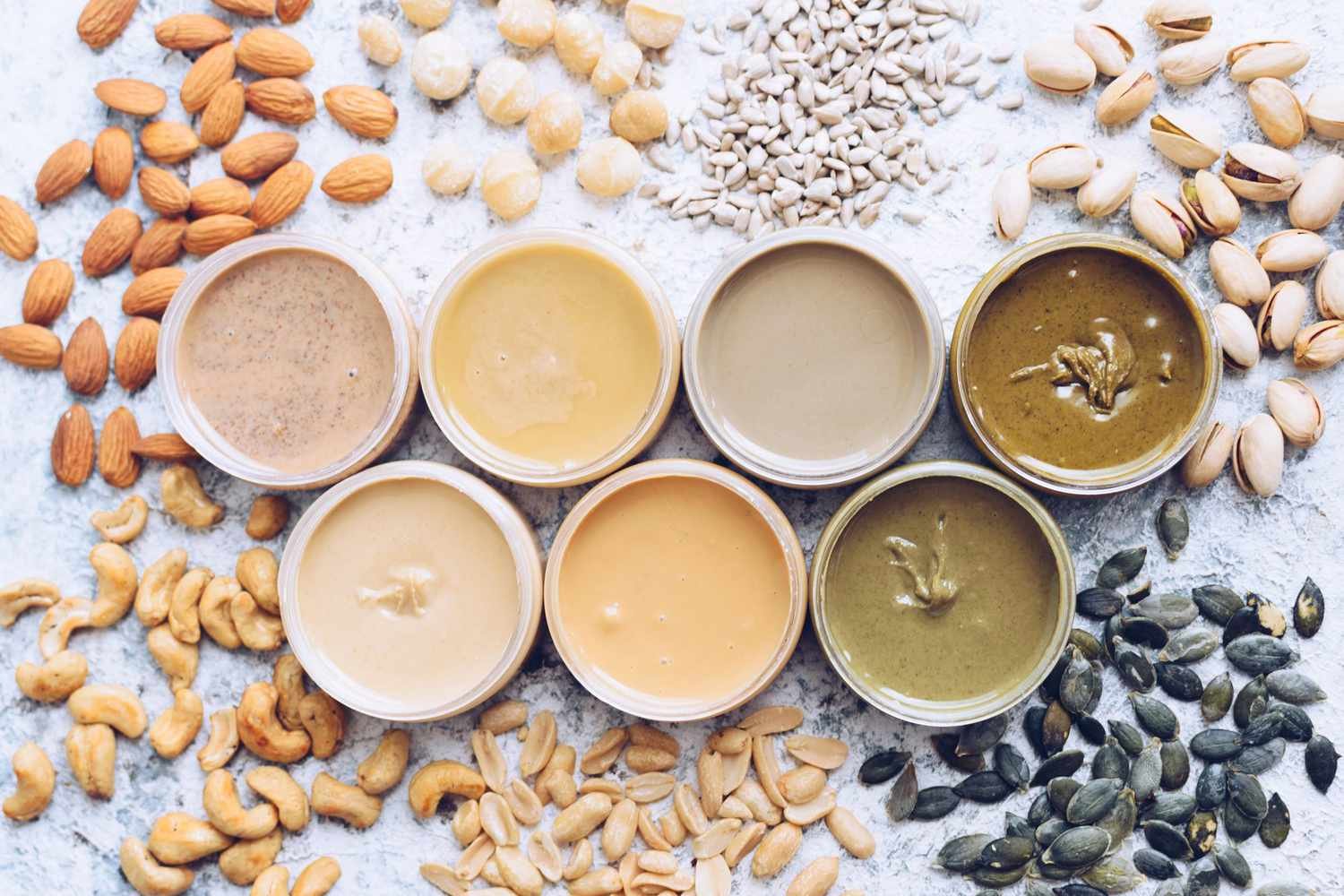In a world where sustainable living and health-conscious choices are gaining momentum, plant-based milk alternatives have surged in popularity. Among the myriad of options, Ripple Milk stands out as a groundbreaking innovation. Made from peas — yes, peas — Ripple Milk offers a compelling combination of nutrition, taste, and environmental responsibility. This article delves into the origins, benefits, environmental impact, and culinary versatility of Ripple Milk, illustrating why it’s becoming a favorite among both plant-based enthusiasts and traditional milk drinkers.
The Origins of Ripple Milk
Ripple Milk was born out of a desire to revolutionize the plant-based milk industry. Founders Adam Lowry and Neil Renninger, both seasoned entrepreneurs and scientists, sought to create a non-dairy milk that didn’t compromise on taste, nutrition, or sustainability. They recognized that many plant-based milks — like almond, soy, and rice — fell short in one or more of these areas. Almond milk, for example, requires a significant amount of water to produce, while rice milk often lacks nutritional density.
The solution they landed on? Pea protein. More specifically, yellow peas. These tiny legumes pack a powerful nutritional punch while being environmentally friendly and remarkably versatile. Ripple Foods launched its first pea-based milk in 2015, and the brand quickly gained a loyal following.
Nutritional Benefits of Ripple Milk
One of Ripple Milk’s most compelling features is its impressive nutritional profile. Let’s break it down:
- High Protein Content: Ripple Milk boasts 8 grams of protein per serving — comparable to traditional cow’s milk and significantly more than almond milk, which typically contains only 1 gram per serving.
- Low Sugar: Unlike many plant-based alternatives that are loaded with added sugars to enhance taste, Ripple Milk offers unsweetened versions with virtually no sugar.
- Rich in Essential Nutrients: Ripple Milk is fortified with essential vitamins and minerals like calcium, vitamin D, and vitamin B12, making it an excellent choice for those following plant-based diets.
- Healthy Fats: With omega-3 fatty acids and monounsaturated fats, Ripple Milk supports heart and brain health without the saturated fat found in dairy.
- Lactose-Free and Allergen-Friendly: Being naturally lactose-free, nut-free, gluten-free, and soy-free, Ripple Milk is a safe and delicious option for those with dietary restrictions or food allergies.
Taste and Texture: A Creamy Delight
Taste and texture can make or break a milk alternative. Ripple Milk shines in this department, offering a rich, creamy consistency that mimics dairy milk more closely than many other plant-based options. It lacks the watery texture common to almond and rice milk and has a neutral, slightly sweet flavor without the strong aftertaste found in soy milk.
This makes Ripple Milk an excellent choice for everything from cereal and smoothies to coffee and baking. The creamy texture also appeals to kids, making it easier for parents to introduce a healthier, more sustainable alternative without complaints.
Environmental Impact: A Sustainable Choice
The environmental toll of traditional dairy farming is significant, involving high greenhouse gas emissions, water consumption, and land use. Ripple Milk aims to mitigate these impacts through its eco-friendly production process:
- Water Efficiency: Producing pea protein requires significantly less water than almond milk or cow’s milk. In fact, it takes 100 times more water to produce almonds than peas.
- Lower Carbon Footprint: Peas are nitrogen-fixing plants, which means they naturally enrich the soil and reduce the need for synthetic fertilizers. This results in fewer carbon emissions compared to dairy and other plant-based alternatives.
- Minimal Land Use: Peas yield high amounts of protein per acre, making them a more land-efficient crop than dairy cattle or even soybeans.
Ripple Foods also employs a proprietary method to extract pea protein while eliminating the earthy flavor commonly associated with peas, ensuring a clean, pleasant taste.
Is Ripple milk actually good for you?
Ripple milk, a plant-based dairy alternative made primarily from yellow peas, has gained popularity for its impressive nutritional profile and eco-friendly production. It’s fortified with essential vitamins and minerals, including calcium, vitamin D, and vitamin B12, which are crucial for bone health and energy production. Unlike traditional dairy, Ripple milk is free from lactose, nuts, soy, and gluten, making it an excellent option for people with dietary restrictions or food allergies.
One of the standout benefits of Ripple milk is its high protein content compared to other plant-based milks. Each serving (about 8 ounces) contains 8 grams of protein — the same amount found in cow’s milk — making it a valuable source of plant-based protein for vegans and vegetarians. Additionally, it contains healthy fats, specifically monounsaturated fats, which are good for heart health.
Ripple milk is also low in sugar, with unsweetened versions containing no added sugars at all. This makes it suitable for those watching their sugar intake. The presence of omega-3 fatty acids, derived from algal oil, further supports brain and heart health. With its smooth, creamy texture, Ripple milk works well in coffee, smoothies, baking, and even on its own.
Overall, Ripple milk is not only a nutritious option but also a sustainable one. Peas require less water and land to grow than almonds or dairy cows, reducing the environmental footprint. For those seeking a healthy, eco-conscious milk alternative, Ripple milk is a strong contender.
How much protein is in pea milk?
Pea milk, especially Ripple milk, is known for its impressive protein content. Each 8-ounce serving of Ripple’s original unsweetened pea milk provides 8 grams of protein — the same amount as traditional cow’s milk. This makes it significantly higher in protein than many other plant-based milks like almond milk (1 gram) or rice milk (0 grams).
The protein in Ripple milk comes from yellow peas, which are a high-quality plant protein source. Yellow pea protein contains all nine essential amino acids, which are necessary for muscle repair, immune function, and overall health. This makes Ripple milk a complete protein source, a rarity among plant-based alternatives.
The high protein content makes Ripple milk particularly beneficial for growing children, athletes, and anyone looking to boost their protein intake without relying on animal products. It also supports satiety, helping people feel fuller for longer, which can assist with weight management.
What is Ripple milk made of?
Ripple milk’s main ingredient is yellow pea protein isolate, derived from split yellow peas. This gives the milk its high protein content and smooth texture. But that’s not all — Ripple milk also contains a blend of other key ingredients to enhance its taste, nutrition, and texture.
The ingredients typically include:
- Yellow pea protein isolate – the primary source of protein
- Sunflower oil – adds creaminess and healthy fats
- Algal oil – provides omega-3 fatty acids
- Organic cane sugar (in sweetened varieties)
- Natural flavors
- Vitamins and minerals – including calcium, vitamin D, vitamin B12, iron, and potassium
The result is a creamy, slightly sweet, and mild-tasting milk that works well in various recipes or as a standalone drink.
Can my 1-year-old have Ripple milk?
Yes, Ripple milk can be a good option for a 1-year-old — but it’s important to choose the right variety. Ripple makes a special version called Ripple Kids, designed specifically for toddlers aged 1 and up. This formula is enriched with extra nutrients like DHA omega-3s for brain development, choline for cognitive function, and prebiotic fiber to support healthy digestion.
The American Academy of Pediatrics recommends that children under 2 years old consume whole milk or milk alternatives with adequate fat content to support brain development. Ripple Kids contains healthy fats and essential vitamins and minerals, making it a suitable dairy alternative.
Always consult with your pediatrician before making any significant changes to your child’s diet to ensure their nutritional needs are met.
Is pea milk better than almond milk?
Pea milk and almond milk are both popular plant-based alternatives, but they differ significantly in nutrition and environmental impact.
Nutrition:
- Protein: Pea milk contains 8 grams of protein per serving, while almond milk usually has only 1 gram.
- Calories: Unsweetened pea milk and almond milk are both low in calories, though almond milk tends to be slightly lower.
- Fat: Pea milk contains heart-healthy unsaturated fats, while almond milk has almost none.
- Vitamins & Minerals: Both are often fortified with calcium, vitamin D, and B12, though Ripple milk tends to offer more complete fortification.
Environmental impact:
- Pea milk production uses significantly less water than almond milk, which is known for its water-intensive farming.
If you prioritize protein and sustainability, pea milk is the better option. If you prefer a lighter, lower-calorie option, almond milk might win out — though pea milk’s taste and creaminess often appeal more to those switching from dairy.
Is pea milk high in fat?
Pea milk contains moderate amounts of healthy fat. Ripple’s original unsweetened variety has about 4.5 grams of fat per 8-ounce serving. Most of this comes from sunflower and algal oils, which provide heart-healthy unsaturated fats, including omega-3 fatty acids.
This fat content is comparable to 2% dairy milk and contributes to the milk’s creamy texture. Ripple Kids, designed for toddlers, contains a bit more fat to support early childhood development.
Is pea milk good?
Pea milk isn’t just good — it’s a standout choice among plant-based milks for many reasons:
- High protein content: 8 grams per serving, rivaling cow’s milk.
- Rich in nutrients: Fortified with calcium, vitamin D, B12, and omega-3s.
- Free from allergens: No nuts, soy, lactose, or gluten.
- Sustainable: Peas require less water and land than almonds or dairy cows.
- Creamy taste: Smooth, slightly sweet, and works well in drinks, cereal, and recipes.
For people seeking a healthy, eco-conscious milk alternative without sacrificing nutrition or taste, pea milk is an excellent option.
What is the pea milk market share?
The plant-based milk market has grown rapidly, and pea milk is carving out a niche. While almond milk still leads the category, pea milk’s share is rising due to its superior protein content and sustainability appeal.
Ripple Foods is the dominant player in the pea milk market. Industry reports suggest that the global plant-based milk market is projected to surpass $50 billion by 2028, with pea milk contributing a growing portion. As more consumers prioritize protein and environmental impact, pea milk’s market share is expected to continue expanding.
Can Ripple Pea milk be heated?
Yes — Ripple milk can be heated without curdling or separating, making it a versatile choice for cooking, baking, and hot beverages like coffee, tea, and hot cocoa. It froths well for lattes, too, thanks to its creamy consistency.
For best results, heat Ripple milk gently over medium heat, avoiding boiling, which can affect the texture. Whether you’re making a warm smoothie, creamy soup, or dairy-free mac and cheese, Ripple milk holds up beautifully in heat.
The Future of Ripple Milk
Ripple Foods continues to expand its product line, introducing innovations like half-and-half, protein shakes, and even dairy-free ice cream. The company remains committed to sustainability, nutrition, and taste, ensuring that plant-based living doesn’t require compromises.
As more people recognize the environmental and health benefits of reducing dairy consumption, Ripple Milk is poised to become a staple in households worldwide. Its combination of creaminess, nutrition, and eco-consciousness makes it a standout in the crowded plant-based milk market.
Final Thoughts
Ripple Milk represents more than just another dairy alternative — it’s a step towards a more sustainable, health-conscious future. With its impressive nutritional profile, creamy texture, and minimal environmental impact, it’s a compelling choice for anyone looking to make a positive change in their diet and the planet.
Whether you’re a long-time vegan, someone exploring plant-based options, or simply curious about healthier, more sustainable choices, Ripple Milk is worth a try. It’s proof that small, thoughtful changes in our daily habits can create ripples of positive impact — for our health, for animals, and for the environment.











Leave a Reply